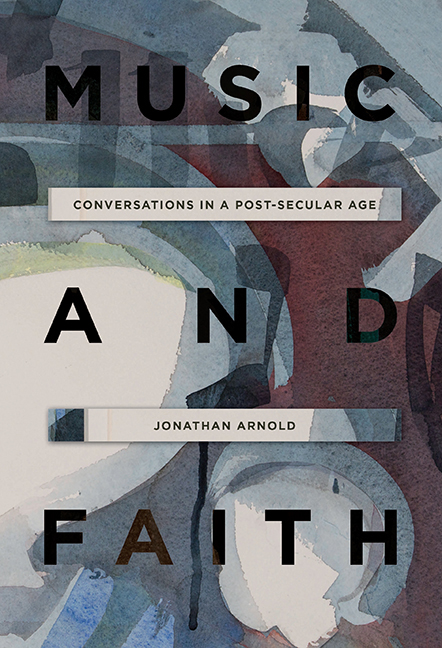Book contents
- Frontmatter
- Dedication
- Contents
- List of Illustrations
- List of Interviewees
- Preface
- Acknowledgements
- Introduction: Faith, Belief and Post-Secularism
- I MEDIEVALISM TO POST-SECULARISM
- II THE HUMAN MIND AND SOCIETY
- 4 Singing in Synchrony: Music, Bonding and Human Evolution
- 5 ‘Fear of the Mystery’: Music, Faith and the Brain
- 6 Music and Faith under Persecution
- Interlude II. An Echo of the Spheres in the Shires: The Enduring Appeal of Sacred Music at the Three Choirs Festival
- III BELIEF AND UNBELIEF
- Conclusion
- Notes
- Bibliography
- Index
5 - ‘Fear of the Mystery’: Music, Faith and the Brain
from II - THE HUMAN MIND AND SOCIETY
Published online by Cambridge University Press: 01 September 2019
- Frontmatter
- Dedication
- Contents
- List of Illustrations
- List of Interviewees
- Preface
- Acknowledgements
- Introduction: Faith, Belief and Post-Secularism
- I MEDIEVALISM TO POST-SECULARISM
- II THE HUMAN MIND AND SOCIETY
- 4 Singing in Synchrony: Music, Bonding and Human Evolution
- 5 ‘Fear of the Mystery’: Music, Faith and the Brain
- 6 Music and Faith under Persecution
- Interlude II. An Echo of the Spheres in the Shires: The Enduring Appeal of Sacred Music at the Three Choirs Festival
- III BELIEF AND UNBELIEF
- Conclusion
- Notes
- Bibliography
- Index
Summary
Where words leave off, music begins.
Music plays a crucial role in social bonding, and the continued importance of community in promoting mental health and well-being within a cohesive society. Robin Dunbar and others have demonstrated that music, and especially singing, is a fundamental part of who we are as human beings. Boethius asserted, many centuries ago: ‘Music is so naturally united with us that we cannot be free from it even if we so desired.’ Likewise, as Anthony Storr declares today: ‘No culture so far discovered lacks music. Making music appears to be one of the fundamental activities of mankind.’
Music is one of the most effective means of bringing people together in order to encounter something numinous, immanent or mysterious (without trying to define these terms too rigidly). Such experience does not separate body and spirit (secular and sacred, corporeal and incorporeal), as in a dualist ideology, but combines the physical and the embodied with the communal. This experiential quality of music is both disclosive and affective, Pythagorean and Orphic, to use Brown and Hopps's terms: ‘Music brings about similar physical responses in different people at the same time. This is why it is able to draw groups together and create a sense of unity.’ It is no surprise, then, that music also has a remarkable effect on brain activity, including the easing of symptoms of neurological diseases or, conversely, provoking epileptic fits (‘musicogenic epilepsy’). Many scientists, psychiatrists and psychologists have charted music's effects on the brain. Oliver Sacks, for instance, analysed how music can affect those who suffer with neurological problems, such as Parkinson's disease, aphasia, dementia, epilepsy or melancholia. He writes, ‘Our auditory systems, our nervous systems, are indeed exquisitely tuned for music.’ However, physiological reasons for such fine tuning have not yet been discovered:
How much this is due to the intrinsic characteristics of music itself … and how much to special resonances, synchronizations, oscillations, mutual excitations, or feedbacks in the immensely complex, multilevel neural circuitry that underlies musical perception and replay, we do not yet know.
However, one explanation posited for the highly influential role of music on the brain has been the notion of possession.
- Type
- Chapter
- Information
- Music and FaithConversations in a Post-Secular Age, pp. 101 - 127Publisher: Boydell & BrewerPrint publication year: 2019

